Aluminum alloy sliding windows have emerged as a popular choice in the construction industry, offering a combination of functionality, performance, and aesthetic appeal.
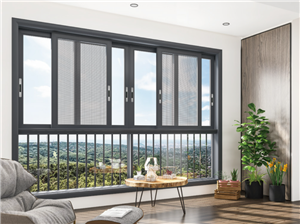
I. Applicable Fields
1. Residential Buildings
- In homes, aluminum alloy sliding windows are widely used in living rooms, bedrooms, and balconies. Their smooth - sliding operation allows for easy access to fresh air while maximizing the view. For example, in a coastal residential area, these windows can be opened wide to enjoy the sea breeze, and when closed, they provide excellent protection against salt - laden air.
2. Commercial Buildings
- In offices, shops, and malls, aluminum alloy sliding windows are favored for their large - scale installation capabilities. They can create an open - and - airy feel, letting in ample natural light. In a modern shopping mall, the large - format sliding windows not only enhance the storefront's visual appeal but also facilitate easy entry and exit for customers in display areas.
3. Industrial Buildings Windows
- Industrial facilities also benefit from aluminum alloy sliding windows. Their durability and resistance to harsh environmental conditions make them suitable for factories and warehouses. For instance, in a manufacturing plant, these windows can be designed to be large enough to provide ventilation for machinery operation while being able to withstand vibrations and potential impacts.
II. Performance
1. Weather Resistance
- Aluminum alloy has natural corrosion - resistant properties. When used in sliding windows, it can endure various weather conditions such as heavy rain, strong winds, and intense sunlight. High - quality sealing materials are used around the windows frames, effectively preventing water leakage and air infiltration. In areas prone to typhoons, the sturdy aluminum alloy structure can withstand strong gusts, ensuring the safety of the building interior.
2. Insulating Performance
- With the addition of thermal breaks in the aluminum alloy windows profiles, these sliding windows can significantly reduce heat transfer. This energy - efficient feature helps maintain a comfortable indoor temperature, whether it's in a hot summer or a cold winter. For example, in a well - insulated building with aluminum alloy sliding windows, the air - conditioning and heating systems can operate more efficiently, reducing energy consumption.
3. Sound Insulation
- The combination of aluminum alloy frames and high - performance glass, such as double - glazed or triple - glazed glass, provides excellent sound - insulation performance. In urban areas with high traffic noise, these windows can effectively block out external sounds, creating a quiet and peaceful indoor environment.
III. Diverse Surface Treatments
1. Powder Coating
- Powder coating is a popular surface treatment method. It offers a wide range of colors, from classic white and black to vibrant and customized hues. This treatment not only enhances the aesthetic appeal of the sliding windows but also provides a protective layer against scratches and corrosion. For example, a modern - style residential building may choose a matte - finished powder - coated aluminum alloy sliding windows to match its sleek design.
2. Anodizing
- Anodizing creates a hard, durable oxide layer on the surface of the aluminum alloy. It not only improves the corrosion resistance but also gives the windows a unique, lustrous appearance. Anodized sliding windows are often used in high - end commercial and residential projects where long - term durability and a refined look are required.
3. Wood - Grain Transfer Printing
- This treatment allows the aluminum alloy to mimic the natural texture and color of wood. It combines the advantages of aluminum alloy, such as strength and low maintenance, with the warm and elegant appearance of wood. It is a great choice for buildings that aim to achieve a traditional or rustic aesthetic.
IV. Customizable Profile Cross - Sections
1. Structural Optimization
- Manufacturers can customize the profile cross - sections of aluminum alloy sliding windows according to different structural requirements. For example, in large - span commercial buildings, the windows profile cross - section can be designed to be wider and more robust to support larger glass panels and withstand greater wind loads.
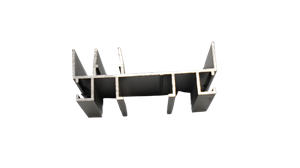
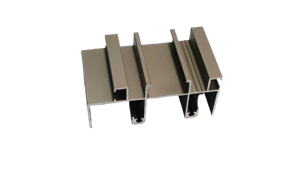
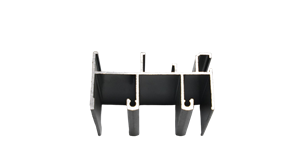

2. Functional Customization
- The profile cross - section can also be tailored to incorporate specific functions. This may include integrating features like better - sealed tracks for smooth sliding, improved drainage systems to prevent water accumulation, or enhanced insulation chambers for better thermal performance. In a coastal building, a customized profile can have additional drainage channels to quickly remove seawater splashes during storms.
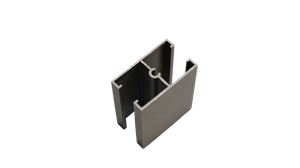
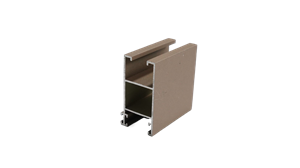
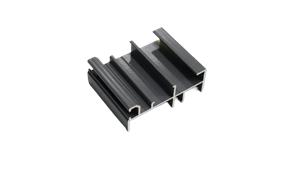
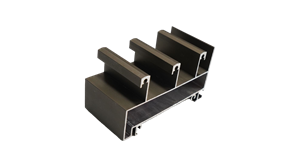
| Open Style | Sliding |
| Opening Pattern | Horizontal |
| Material | AL 6063, 6061 |
| Temper | T5,T6 |
| Surface Finshing | Anodizing, Powder Coating, Wooden Grain Transfer Printing |
| Glass | Single or Double Glass |
| Origin | Shandong China |
| Material | Aluminium Alloy |
| Thickness | 0.7~ 1.5mm |
| Price | Negotiation |
| Price Term | FOB |
| FOB Port | Qingdao port, China |
| Payment Term | T/T, L/C |
| MOQ | 1000kg |
| Delivery methods | Shipping |
| Quality Standard | GB/T5237.1-2008 |
| Packing | Protective Film ,Compound Kraft Paper ,Shrink Film ,Plastic Interlayer , Luming logo paper ,Wooden Case ,or according client's requirements. |
| HS Code | 7610100000 |
Our factory locates in Linqu county,Shandong Province china
Of course, we can take you to visit our factory and provide a detailed introduction. We can also take you to visit us.
Yes, we can customize the service according to your requirements. We also have a professional product development department